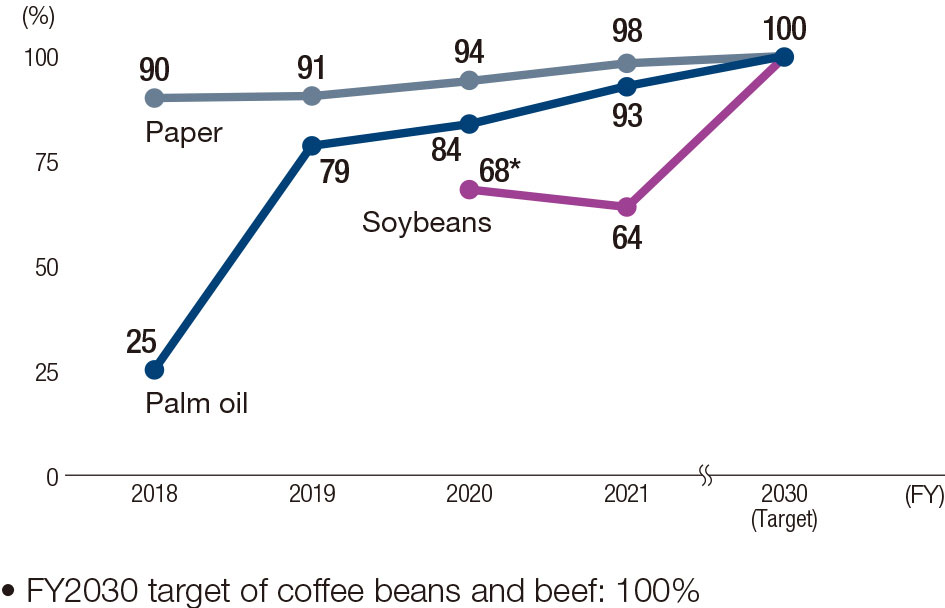Sustainable materials sourcing
Approach
The Ajinomoto Group has products in more than 130 countries and regions and sources raw materials from even more geographies. Our business is built on a resilient food system consisting of a stable supply of food resources supported by a rich and abundant global environment.
But we recognize the burden our business places on the environment. All processes from raw material production to the final products emit greenhouse gases, create plastic waste, and result in food loss and waste, all of which pose environmental and societal risks. In addition, when natural forests are damaged, peatlands developed, and water and soil contaminated, ecosystems are damaged, making it difficult to maintain food resources. It is therefore urgent that businesses such as ours take measures to further decrease our environmental impact across the entire value chain.
This also includes supporting a healthy and vibrant society through the defense of human rights for all people involved in the supply chain and ensuring their occupational health and safety are protected. In addition, since we use animal-based raw materials, it is necessary for us to improve animal welfare.
We will work together with stakeholders throughout our supply chain to address these issues and make improvements to build a supply chain that positively impacts the environment and society.
Specific examples
- Biodiversity impacts
- Deforestation control
- Elimination of child and forced labor
- Supply chain management
- Sustainable land use
- Animal welfare
- Animal and plant nutrition
Related opportunities and risks ( Opportunity
Opportunity  Risk)
Risk)
 Creating business opportunities by developing products in consideration of resource recycling and biodiversity
Creating business opportunities by developing products in consideration of resource recycling and biodiversity Failure to procure raw materials, product recalls due to quality issues in the supply chain
Failure to procure raw materials, product recalls due to quality issues in the supply chain Failure to procure raw materials and damage to corporate value due to delays in addressing social and environmental issues in the supply chain
Failure to procure raw materials and damage to corporate value due to delays in addressing social and environmental issues in the supply chain Supply chain disruptions due to natural disasters, pandemics, or delays in responding to export restrictions in certain regions
Supply chain disruptions due to natural disasters, pandemics, or delays in responding to export restrictions in certain regions Failure to procure raw materials due to food resource depletion
Failure to procure raw materials due to food resource depletion
Key initiatives by the Ajinomoto Group
- Visualize issues in the supply chain
- Conduct human rights impact assessments
- Pursue animal welfare
- Establish traceability and purchase certified products
- Ensuring fair competition and providing thorough employee training
- Contributing to sustainable agriculture by using co-products
Related SDGs
-
Sustainable procurement ratio

* Procured for businesses in Japan
Activity Report
- ASV Report p.47 “Approach to reducing our environmental impact by 50%”
- Environmental management
- Initiatives related to key raw materials
- Supply chain management
- Animal welfare
- Contribution to sustainable agriculture




